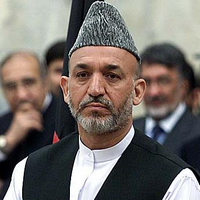One purpose of U.S. Secretary of State Hillary Clinton’s recently completed trip to Afghanistan and several of its neighbors was to secure the growing flow of Western military supplies entering Afghanistan through the Northern Distribution Network (NDN), which involves Tajikistan, Uzbekistan, Russia and other former Soviet republics. Another objective was to promote Afghanistan’s economic integration with the rest of Central Asia. Both tasks are difficult and essential, but we must not allow our urgent pursuit of the first to distract us from the long-term necessity of the second.
The Central Asian countries have been logical partners to support the U.S.-led war in Afghanistan. Tajikistan, Turkmenistan and Uzbekistan border Afghanistan, while Kyrgyzstan and Kazakhstan are located nearby. Their governments share Western concerns that renewed Taliban control over parts of Afghanistan would give an impetus to Islamist militancy in the region. All of the Central Asian countries have been targeted to various degrees by Muslim extremist organizations linked to the Taliban and al-Qaida. Most recently, Tajikistan has seen a revival of the Islamic Movement of Uzbekistan, which was the region’s main Islamist terrorist network before U.S. forces destroyed its bases in Afghanistan in late 2001.
Like the U.S. and Russia, Central Asian governments would also like to curb the flow of narcotics from Afghanistan to and through their countries. Although some groups in Central Asia profit from the drug trade, the region’s societies suffer from the associated increase in crime, corruption and local narcotics use. Narcotics traffickers are rumored to have helped finance some of the mass violence that plagued Kyrgyzstan last year as a means of disrupting national law enforcement operations.

